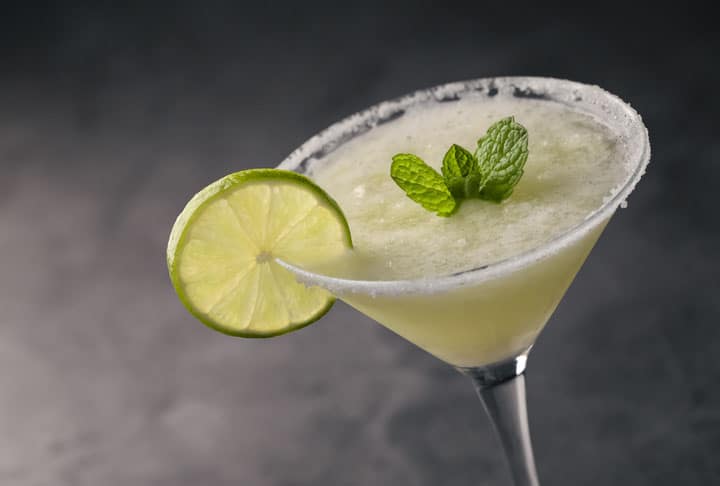 Avi Finegold
Avi Finegold You may not normally think of a rabbi as a mixologist. However, Rabbi Avi Finegold has found a way to combine the two.
“Food and drink often go together, and I sort of morphed into this person that teaches people about Judaism using cocktails, whenever the occasion presents itself,” Finegold told the Journal. “And I have a lot of fun with it.”
Years ago, even before there was an elevated cocktail culture, people would call up Finegold to ask what drinks were kosher at a bar.
“They knew that I was a rabbi and that I actually didn’t feel bad going into a bar with friends and having a drink,” he said.
He started learning about well-crafted cocktails, and realized that there’s a niche for being able to think about cocktails in a Jewish way. Finegold also realized he could get much better drinks by learning how to make them himself.
After he learned the foundational cocktails (there’s only about a handful) and their variations, it was only a “hop, skip, and a jump to being able to integrate that with Jewish ideas and Jewish thoughts,” Finegold said.
Once you understand the master recipes, and you know exactly what it is that you like to drink, it’s easy to start riffing on them and creating your own variations.
Finegold starts just about every one of his workshops in the Jewish cocktail lab with a daiquiri. A daiquiri is white rum, simple syrup (which is liquid sugar) and fresh juice from a lime. Recipe is below.
“A daiquiri is actually one of the hardest cocktails to make and to perfect, because it has so few things to hide,” he said. “A real daiquiri is not a frozen, blended drink. If you go to a cocktail bar, and you ask for a daiquiri, they will present you with something that looks very simple and very straightforward in a glass.”
In fact, it’s usually how a bar tests budding cocktail mixologists when they are looking to hire.
“It is the simplest cocktail to make, and it is the hardest to master,” he said.
And then you learn how to adapt. If you want it a little sweeter, you add a quarter ounce extra simple syrup. For more tart, you pull back on the simple syrup.
Once you’ve perfected the daiquiri, you can see that it is the basis for many other possible cocktails, as long as you switch out one or two ingredients in the same proportions.
“So if you swap out the lime juice for lemon juice, and you add in whiskey instead of rum, you have a whiskey sour,” Finegold said. “You swap out that whiskey and you put in amaretto, you have an amaretto sour. It’s the basis for a gin gimlet if you put in gin, lime juice and simple syrup.”
As you get comfortable, you can get more elaborate. For instance, a mojito is essentially a daiquiri with mint and then you add seltzer.
“As you start playing with it, you start realizing that the formula is always the same,” he said. “You’re just changing one or two things.”
If you’re interested in digging deeper, he suggests reading the “Cocktail Codex.”
“Once you learn how to make [cocktails], you only want to share your enthusiasm with other people,” said Finegold, who calls experimenting with cocktails “the greatest thing.”
He adds, “You learn something new, and you have a cocktail to celebrate with.”
Finegold is the founder of the Montreal-based Jewish Learning Lab, which is an adult education initiative. He has also anchored the weekly Bonjour Chai podcast, since its debut in March 2021, Bonjour Chai, as a cornerstone project of The Canadian Jewish News. Learn more about Avi Finegold at the Jewish Living Lab.
For the full conversation, listen to the podcast:
Watch the interview:

Daiquiri Recipe
2 oz. light rum
3/4 oz. lime juice, fresh squeezed
3/4 oz. simple syrup (equal parts sugar and water dissolved together)
Combine ingredients.
Shake with plenty of ice and strain into cocktail glass.
Debra Eckerling is a writer for the Jewish Journal and the host of “Taste Buds with Deb.” Subscribe on YouTube or your favorite podcast platform. Email Debra: tastebuds@jewishjournal.com.























 More news and opinions than at a Shabbat dinner, right in your inbox.
More news and opinions than at a Shabbat dinner, right in your inbox.